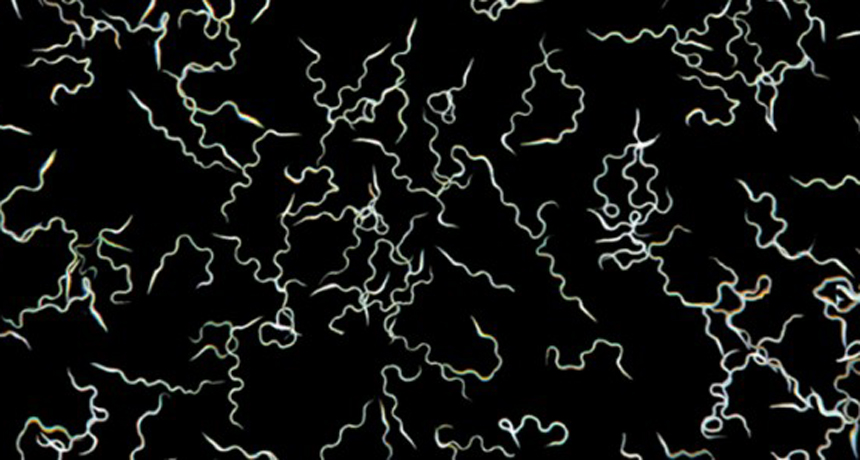Mosquito sperm may sense smells

Aedes aegypti mosquito sperm, shown here magnified by a factor of 50, may have odor sensors in their tails that help them navigate during reproduction.
Jason Pitts/Vanderbilt Univ.

Aedes aegypti mosquito sperm, shown here magnified by a factor of 50, may have odor sensors in their tails that help them navigate during reproduction.
Jason Pitts/Vanderbilt Univ.